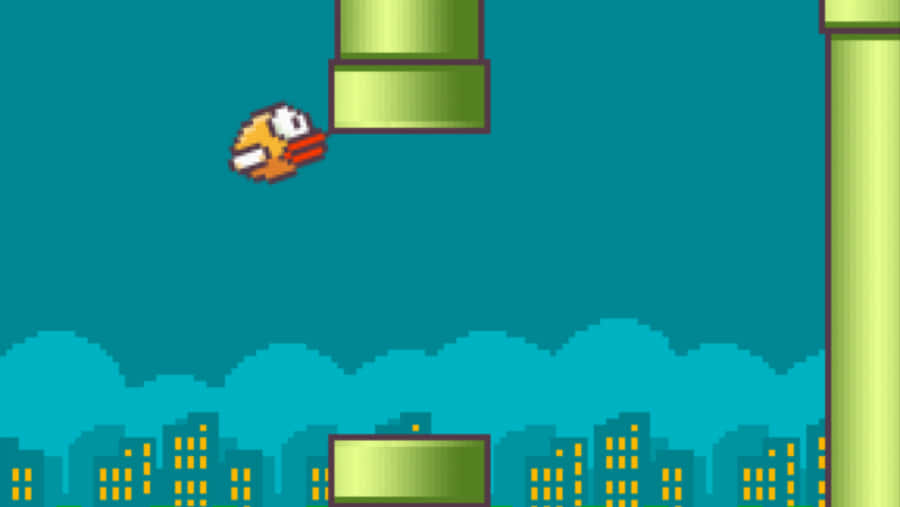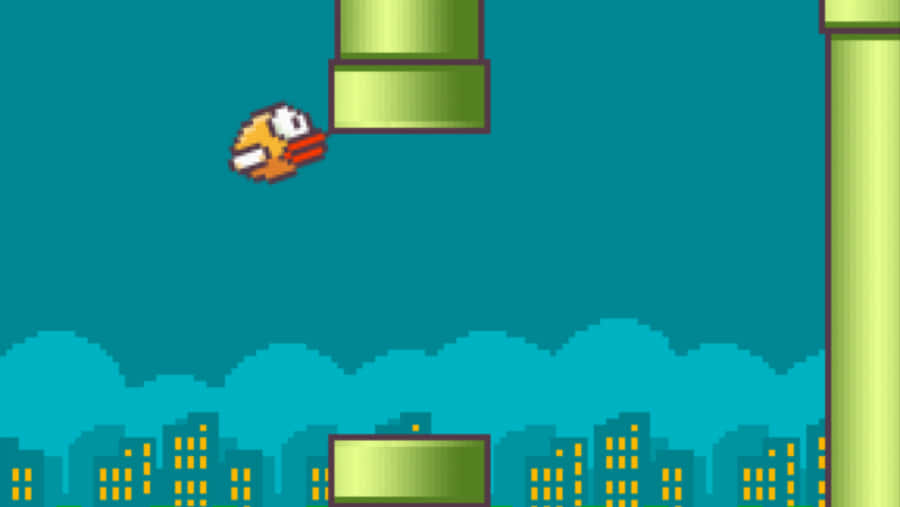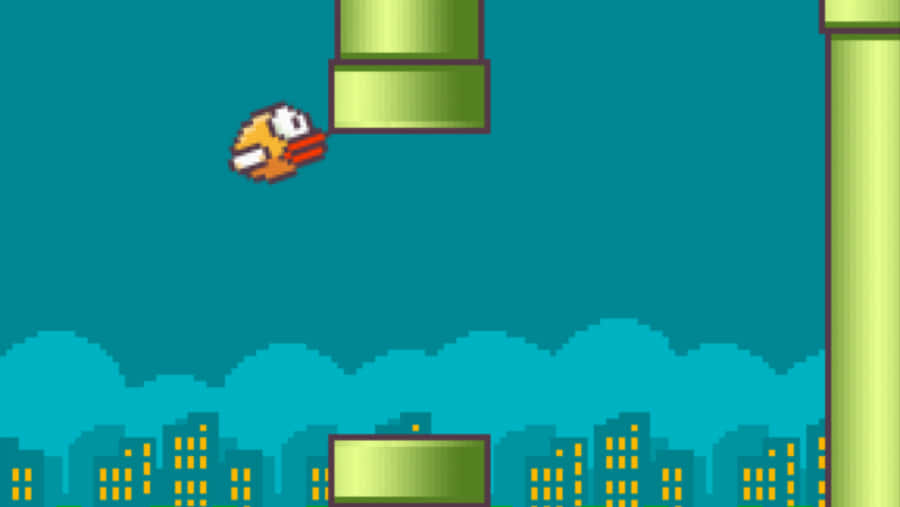Flappy Bird 12 hour Marathon
What Really Happens If You Leave Flappy Bird Running for 12 Hours Straight?
The infamous, deceptively simple, and maddeningly addictive Flappy Bird vanished from app stores years ago, yet its legend endures. Many a smartphone user from its heyday remembers the thrill of navigating that pixelated bird through an endless gauntlet of green pipes. But a curious question lingers for some: what would actually happen if you left Flappy Bird running, untouched, for a solid 12 hours? Would the game reveal a hidden secret? Would your phone stage a protest? Let's dive into the theoretical outcomes of this pixelated marathon.
The Allure of the Endless Flap: Why Even Ask?
Flappy Bird's charm lay in its brutal simplicity and the primal urge to achieve just "one more" point. It was an endless runner in its purest form, offering no narrative, no levels beyond the increasing score, and no ultimate victory screen. This very endlessness, coupled with its notorious difficulty, naturally sparks "what if" scenarios. What are the limits of such a seemingly simple program when pushed to an extreme, like a 12-hour continuous session? While no documented experiment specifically details leaving the original Flappy Bird running untouched for this exact duration, we can infer likely scenarios based on its design and how similar mobile games behave.
Deconstructing Flappy Bird: What's Under the Hood?
At its core, Flappy Bird was a triumph of minimalist game design. The gameplay involved tapping the screen to make the bird "flap" upwards, fighting against a constant downward pull of gravity. The challenge was to guide it through narrow gaps in pipes that appeared at varying heights. Each successful pipe passage added a point to your score.
The game's code was relatively straightforward. It didn't involve complex background processes, extensive data logging (beyond the current and high score), or evolving game states beyond the randomly generated pipe placements. It was designed as an endless loop: flap, avoid, score, repeat. This simplicity is key to predicting what a 12-hour session might entail.

The 12-Hour Marathon: Theoretical Game Outcomes
If Flappy Bird were left running (perhaps with a bot perfectly navigating the pipes, as no human could maintain perfect play for 12 hours), what might happen within the game itself?
The Score Counter: Hitting the Ceiling?
One of the first thoughts is the score. Could it reach a point where the game can no longer count? Most games store scores as numerical variables (like integers). These variables have maximum limits. For example, a 32-bit signed integer can store a maximum value of 2,147,483,647.
Achieving such a score in Flappy Bird, even over 12 hours, is astronomically unlikely through legitimate, un-sped-up gameplay. While viral stories and videos sometimes show impossibly high scores, these are almost always the result of hacking, cheats, or manipulated game files. The original game was not designed with mechanisms to easily reach scores that would challenge common variable limits within a "mere" 12 hours of standard play. If such a limit were reached, the game might glitch, the score could reset to zero or a negative number, or it might simply stop incrementing. However, for a 12-hour run, this is highly improbable.
Pipe Generation: Infinite and Unchanging?
Flappy Bird's pipes are generated procedurally, meaning their heights are determined by an algorithm with an element of randomness within set parameters. Over 12 hours, millions of pipes would scroll by. Would the pattern break or become predictable?
It's unlikely. The generation algorithm is designed to be continuous and, while seemingly random, follows a defined logic. There's no indication that the game was programmed with an evolving pipe difficulty or pattern change that would trigger after an extreme duration. The pipe generation would likely continue its standard behavior indefinitely, or at least until some other technical limitation is hit.
Bugs and Glitches: Emergent Issues from Long Play?
Could running the game for such an extended period unearth hidden bugs? It's possible, though Flappy Bird's simplicity again makes it less prone to the kind of complex, state-dependent bugs that plague larger games.
- Memory Leaks: If the game had any minor memory leaks (where it uses up memory but doesn't release it properly), over a very long session, this could theoretically lead to slowdowns or a crash. However, for a game this basic, a significant memory leak that would manifest in 12 hours would be surprising.
- Visual Oddities: Perhaps minor graphical glitches could occur due to the sheer number of repetitions, but nothing game-breaking is anticipated.
The most probable in-game outcome is that Flappy Bird would simply continue to operate as designed, with the score diligently ticking upwards, assuming the bird is kept alive.
The Device's Ordeal: Real-World Consequences
More realistically, the primary consequences of leaving Flappy Bird running for 12 hours would be felt by the device itself.
Battery Drain: The Obvious Culprit
This is the most certain outcome. Running any game, even a simple one, continuously for 12 hours would place a significant demand on a smartphone's battery. Unless the phone is plugged in, it would almost certainly run out of power long before the 12-hour mark. If plugged in, the battery would still undergo a prolonged period of charging and discharging stress.

Screen Burn-In: A Lingering Ghost?
For phones with OLED or AMOLED screens, having static or near-static elements displayed for an extremely long time can lead to screen burn-in, where a faint "ghost" image of those elements remains permanently visible. In Flappy Bird, while the bird and pipes are moving, the score display and parts of the background are relatively static. 12 hours is a significant duration, and while not guaranteed, it could increase the risk of minor burn-in on susceptible displays.
Overheating and Performance
Continuous processing, even for a simple game, generates heat. Over 12 hours, the device would likely become noticeably warm, or even hot. Most modern phones have thermal throttling, meaning they reduce performance to prevent overheating. This could potentially lead to the game stuttering or slowing down after many hours, not due to an in-game issue, but as a self-preservation measure by the phone's hardware.

The Human Element: If Someone Was Actually Playing...
Of course, the premise of "leaving Flappy Bird running" might imply automated play. If a human were attempting this feat, the outcome is predictable: utter exhaustion and failure long before 12 hours. The game's design requires constant, precise input, making such a marathon an impossible feat of endurance and concentration for a person.
So, What's the Most Likely Outcome After 12 Hours?
Assuming the phone is plugged in and a hypothetical bot is playing perfectly, after 12 hours, Flappy Bird itself would most likely still be flapping along, displaying an impressively high score. There would be no secret ending, no sudden change in gameplay, and likely no critical in-game bug.
The real story would be the toll on the device: a stressed battery, a warm (or hot) chassis, and a small but non-zero chance of screen burn-in. The magic of Flappy Bird wasn't in hidden depths, but in its simple, addictive, and endlessly frustrating loop. Running it for 12 hours would simply be that loop, magnified.